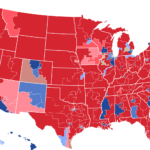Two cases involving slain former National Football League players could have serious consequences on the “Stand Your Ground” law in the state of Louisiana, and those precedents could affect similar legislation around the United States of America.
Trials Involving Slain NFL Players Challenge ‘Stand Your Ground’ Law
The law, Louisiana Revised Statutes Title 14 Chapter 20, currently gives anyone who is inside of a dwelling, place of business or motor vehicle who feels threatened to the point where he/she believes that deadly force is necessary the legal space to use that deadly force to defend themselves. It also authorizes a person to use deadly force in public places when a similar threat has been levied against her/his person by another party.
This statute will be of particular concern in the current murder trial of Cardell Hayes, who has confessed to the murder of former New Orleans Saints player Will Smith. It will also be of importance in the upcoming trial of Ronald Gasser, who admitted to killing former NFL player Joe McKnight.
The Law as it Applies to Each Case
In the case of Smith’s murder, Hayes’ defense rests on Article C of the afore-mentioned law. According to testimony, Hayes was not in a motor vehicle, place of business or private dwelling when he shot Smith, but rather in a public street. Regardless, Article C of the law could provide Hayes protection from conviction because he maintains that Smith was the aggressor in the confrontation, and he was merely acting in self-defense.
In the murder of McKnight, Gasser was in his vehicle when he discharged his weapon. That gives Gasser some additional legal clout. The law gives individuals in their motor vehicles justification for committing homicide not only to prevent bodily harm to themselves, but also to prevent another person from entering the vehicle uninvited. Speaking perhaps in terms of oversimplification, all Gasser would have to do is claim that he believed that McKnight was going to try to enter his vehicle, and he would be immune from conviction for homicide.
The results of both of these cases will now depend on two things: eyewitness testimony and convincing the juries in both cases of the stories that the appropriate parties want them to believe. In both cases, it will be the prosecution’s job to establish that the men who have been charged did not have reason to believe that they had been threatened, or were the aggressors of the confrontations themselves.
The defense will argue the opposite, that both alleged murderers had sufficient reason to believe that they were in danger. Under the state law, then, the charges against them pertaining to homicide must be dropped.
How the Verdicts Could Affect the Law
What’s more certain than the outcomes of both of these trials, is that guilty verdicts in both cases could render the “stand your ground” law in Louisiana much less effective.
The crux of this law is the personal emotion and perception of the person involved. The intent of the law is to provide immunity from criminal punishment for actions taken based on those individual emotions and perceptions.
Hayes hasn’t wavered on his testimony of his perception that he acted in self-defense throughout his trial, which was in its closing arguments at the time of this writing. Testimony of the events from other sources has conflicted with Hayes’ recounting, but what has remained unchanged is his insistence that he believed that he was reacting to deadly force threatened toward his person. By the letter of the law, that’s all the justification he needs.
While Gasser’s trial has yet to begin, Gasser was originally released after he was questioned because of the tenets of the law. Jefferson Parrish Sheriff Newell Normand stated that Gasser’s release was primarily a strategic move to prompt eyewitnesses to come forward in order to gather further information about the altercation, but he does admit that the language of the “stand your ground” law complicated charging Gasser with murder.
At this point it’s a safe assumption but not a certainty that Gasser will maintain a stance that McKnight intended to threaten his person, or even enter his car, through the trial. Once again, according to the letter of the law, Gasser would be justified simply on that belief. Other testimonies could conflict with Gasser’s recounting of the events, like in Hayes’ case, but the law as written is only concerned with what Gasser holds true.
The Ramifications of a Guilty Verdict
In this respect, a guilty verdict in one or both cases would challenge the practical application of the law if the facts produced in the trial collaborate to establish that McKnight and/or Smith acted as the aggressors in the situation.
In that context, a guilty verdict would mean that the perception of the events in the minds of a jury, not the person charged with homicide, would be the actual deciding factor in whether or not the homicides were justified. Essentially, the “stand your ground” law would be void, as the specific situation that the law was intended to prevent would be exactly what would play out.
It’s uncertain whether that situation would become an outlier or an oft-called-upon legal precedent. If the latter, then that precedent could be used in litigation in other states, rendering their legislation powerless. Currently, 23 other states have similar legislation in place, meaning that the effect of these laws being null would be significant on a national level.
On the other hand, if the juries in both cases find that both Gasser and Hayes had legitimate reason to feel threatened and acquit them on those grounds, then both the intent and language of this law are upheld. The validity of the “stand your ground” law in Louisiana, and thereby other states as well, is just as much on trial in both of these cases as Gasser and Hayes are.













